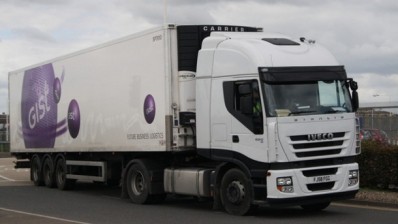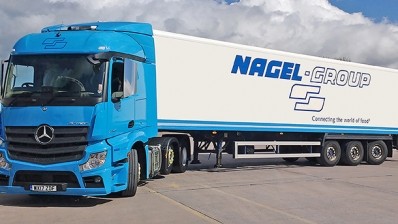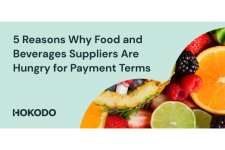Autumn Statement
Autumn Statement gets mixed reception from food and logistics sectors

Food and Drink Federation (FDF) director general Ian Wright said: “For food and drink, the chancellor’s support for the productivity agenda and extra funding for innovation more broadly means better skilled jobs, more sustainable manufacturing processes, and greater capacity for R&D [research and development].”
Wright added that UK food and drink manufacturers had been “a beacon of productivity and export growth,” as figures this week revealed. Despite exports of branded food and drink reaching record highs there was still massive untapped opportunity for UK businesses.
‘Massive untapped opportunity for UK businesses’
The FDF will work with UK Export Finance to boost awareness among food and drink exporters of the products and services they provide, pledged Wright. “For food and drink producers, it’s the on-the-ground support such as mentoring and increased UK presence at international trade shows which can result in the greatest gains.”
The £23bn funding for productivity was the right commitment at the right time, said the FDF. Productivity growth in food and drink manufacturing continued to outstrip the wider economy.
The chancellor’s support for the productivity agenda and extra funding for innovation meant better skilled food and drink jobs, more sustainable manufacturing processes, and greater capacity for R&D, he said.
But Wright highlighted the need for a new industrial strategy, informed by the particular needs of food and drink manufacturers. That was needed urgently to “sustain our workforce needs, access essential raw ingredients and maintain consumer confidence in our industry”.
The National Farmers Union (NFU) said the statement included some positive measures but fell short of helping farm businesses deliver their potential.
The planned reduction to the rate of Corporation Tax, while providing benefits to the supply chain, will do little to help most farm businesses that are unincorporated, said the NFU director of policy Andrew Clark.
While the NFU strongly supported a living wage for all workers, the union had expressed to government concerns about the speed of implementation. “Accelerating increases will make this even more difficult for employers and we remain concerned about the lack of consultation with the agricultural and horticultural sector on these measures and how they will affect farm businesses,” said Clark.
“Although the chancellor has announced a new National Productivity Investment Fund that will add £23bn in higher value investment over the next five years, including a £2bn investment in research and development, it is not clear where this will be spent,” he added. “The government must continue its support of the Agri-Tech Strategy and this new investment simply must include the agri-food sector.”
The rise in the National Living Wage for over 25s, from £7.20 per hour to £7.50 per hour, could cause “another headache for food and drink manufacturers”, warned law firm Gordons.
Rise in the National Living Wage
The firm’s food and drink solicitor Mark Jones said: “Many employers spent those first few months assessing the impact of increased staff costs and although there has been an element of restructuring, the general feeling was that the new National Living Wage was still only a small increase on the National Minimum Wage that was already in place.”
The Freight Transport Association (FTA) welcomed the freeze in fuel duty but said a rate cut would have benefited the logistics sector and the wider economy. The freeze will save truck operators – most of which are small and medium-sized businesses – about £9,000 a year for a typical 10-vehicle fleet.
The FTA had called for a 3p per litre cut in fuel duty, which would deliver around £1,500 annual saving on the running cost of a 44t truck, it claimed.
FTA deputy chief executive James Hookham welcomed the additional £1.1bn investment in local transport networks in England, where small investments could offer “big wins”.
The Campaign for Real Ale (CAMRA) welcomed the chancellor’s decision not to raise beer duty in the Autumn Statement.
CAMRA's national chairman Colin Valentine said: “Pubs are under a huge amount of financial pressure and with UK beer drinkers paying 52.2p of duty on their pint we are seeing more and more people choosing to drink at home rather than at their local.
“This trend not only hurts UK businesses, but is also contributing to the demise of our communities and affects people’s personal well being.”



















